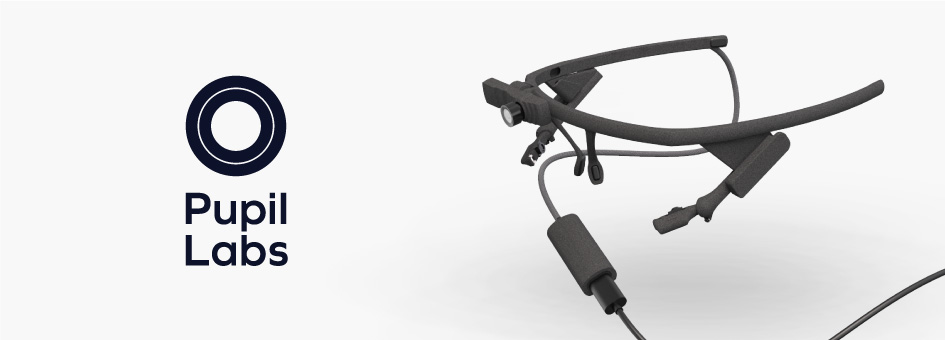This repo ships with a docker development environment. Simply open this project in VSCode and you should be prompted with "Open in Container". Click yes ... wait for a bit ... and enjoy a dev environment that ships with all dependencies.
If you feel like some programs are missing add them to the .devcontainer/Dockerfile or if its a python dependency to the requirements.txt file. (You need to rebuild the container to apply them)
To launch the "Capture" software navigate to /pupil_dev/pupil/pupil_src and execute:
python main.py capture
In order to run pupil capture on an ARM64 device a separate
Docker container can be build that handles installations
from source of necessary dependencies. The Dockerfile and
docker-compose file can be found in the .devcontainer
directory.
Open source eye tracking platform.
Pupil is a project in active, community driven development. Pupil Core mobile eye tracking hardware is accessible, hackable, and affordable. The software is open source and written in Python and C++ when speed is an issue.
Our vision is to create tools for a diverse group of people interested in learning about eye tracking and conducting their eye tracking projects.
Chat with us on Discord.
You don't need to know how to write code to use Pupil. Download the latest apps!
Read the Pupil Core user guide.
There are a number of ways you can interact with Pupil Core software as a developer:
- Use the API: Use the network based real-time API to communicate with Pupil over the network and integrate with your application.
- Develop a Plugin: Plugins are loaded at runtime from the app bundle. Note: if your plugin requires Python libraries that are not included in the application bundle, then you will need to run from source.
- Run from Source: Can't do what you need to do with the network based api or plugin? Then get ready to dive into the inner workings of Pupil and run from source!
All setup and dependency installation instructions are contained in this repo. All other developer documentation is here.
To run the source code, you will need Python 3.7 or newer! We target Python 3.11 in our newer bundles and we recommend you to do the same.
Note: It is recommended to install the requirements into a virtual environment.
Note: On arm64 macs (e.g. M1 MacBook Air), use the python3.*-intel64 binary to create
the virtual environment. We do not yet provide arm64-native wheels for the Pupil Core
dependencies.
git clone https://github.com/pupil-labs/pupil.git
cd pupil
git checkout develop
python -m pip install -r requirements.txtIf you have trouble installing any of the dependencies, please see the corresponding code repository for manual installation steps and troubleshooting.
To grant Pupil Core applications access to the cameras, run
echo 'SUBSYSTEM=="usb", ENV{DEVTYPE}=="usb_device", GROUP="plugdev", MODE="0664"' | sudo tee /etc/udev/rules.d/10-libuvc.rules > /dev/null
sudo udevadm triggerand ensure that your user is part of the plugdev group:
sudo usermod -a -G plugdev $USERThe sounddevice package depends on the libportaudio2 library:
sudo apt install libportaudio2cd pupil_src
python main.py capture # or player/serviceNote: Due to technical limitations on macOS 12 Monterey and newer, Pupil Capture and Pupil Service need to be started with administrator privileges to get access to the video camera feeds. To do that, prepend the python command with sudo. E.g.,:
sudo python main.py captureThe following arguments are supported:
| Flag | Description |
|---|---|
-h, --help |
Show help message and exit. |
--version |
Show version and exit. |
--debug |
Display debug log messages. |
--profile |
Profile the app's CPU time. |
-P PORT, --port PORT |
(Capture/Service) Port for Pupil Remote. |
--hide-ui |
(Capture/Service) Hide UI on startup. |
<recording> |
(Player) Path to recording. |
All source code written by Pupil Labs is open for use in compliance with the GNU Lesser General Public License (LGPL v3.0). We want you to change and improve the code -- make a fork! Make sure to share your work with the community!

